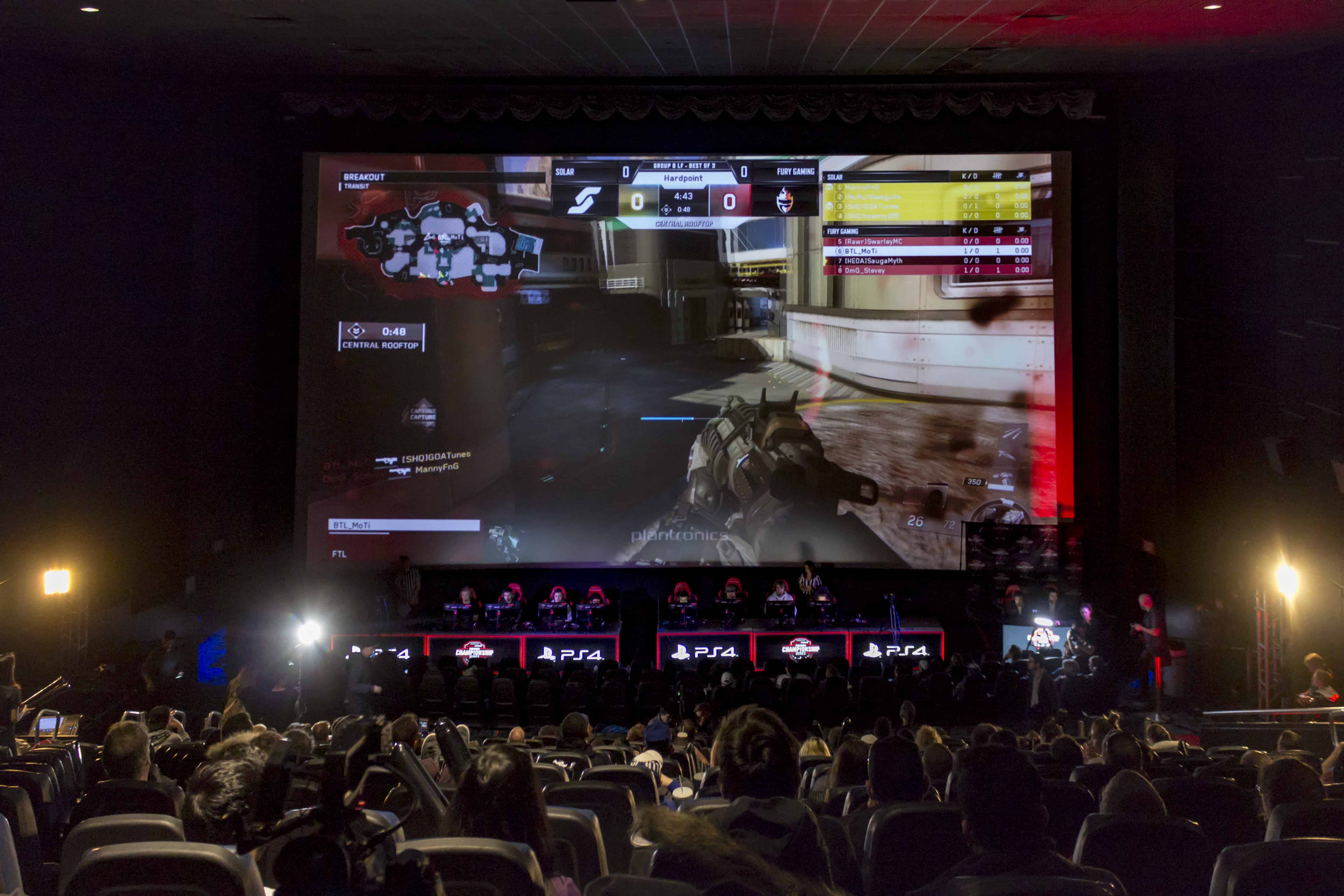Reload, strafe, jump, throw grenade, pull trigger, and — boom — headshot. The player that was just killed is facing forward, away from the big screen at Scotiabank Theatre, anxiously waiting to respawn and rain a symphony of virtual death down on his opponents. The theatre is packed, full of fans cheering gleefully for each simulated kill.
Ignoring any inference about our society that this spectacle may provoke, the Call of Duty: Infinite Warfare Cineplex WorldGaming Canadian Championship Series 2017 is evidence of the quickly growing eSports industry.
Although eSports has only recently enjoyed widespread popularity, video game competitions have existed for decades. Notably, Atari held a Space Invaders Tournament in 1980 with over 10,000 participants, and Microsoft sponsored a Quake tournament in 1997 that drew in 2,000 participants — the winner took home a Ferrari that belonged to one of the game developers.
The 1990s saw a huge expansion in competitive gaming. The emergence of console and PC gaming led to a profusion of tournaments for games like Street Fighter II, Quake, and Starcraft. The first professional eSports league, Cyberathlete Professional League (CPL), was founded in 1997. Within a year, CPL was hosting tournaments with cash prizes of up to $15,000.
In 2002, Major League Gaming (MLG) was founded. According to Wim Stocks, General Manager and CEO of WorldGaming, the “[MLG] have to be credited with so much of [the] vision of what competitive gaming could look like.”
MLG is the longest running eSports league in North America. They host a variety of high profile tournaments across the globe, implement a pro points system that ranks players internationally, and provide a free digital platform that streams eSports competitions.
WorldGaming, in conjunction with Cineplex, has been hosting eSports events across Canada, but one of the major problems facing eSports is the lack of a strong centralized league. “It’s the only thing that’s missing in eSports today, these events go on around the world, but there’s no dedicated spot, there’s no city teams… There’s one event in Poland, one event in Shanghai. And no question those are leagues, but there’s nothing to sustain involvement from an event perspective in between,” said Stocks.
Last Sunday afternoon, Cineplex and WorldGaming held their second annual Canadian Championship Series, an event that brings the country’s best Canadian eSports teams together to contend for the national title.
The tournament saw eight Canadian teams compete in the popular first-person shooter Call of Duty: Infinite Warfare before a raucous crowd at Scotiabank Theatre Toronto.
Gameplay was projected onto the big screen with a rotating series of different players’ perspectives as commentators Clint Evans, Jack Dunlop, and Matt Morello announced the action.
Along with the championship title, the winning team was set to claim $20,000 in cash and a berth in the CWL Anaheim Open, an MLG tournament, to compete on the North American stage and prove their worth internationally.
“This is a big event for Canada, it’s a big event for the Call of Duty community,” said Stocks. “These are all very skilled Call of Duty players. They’ve been playing Call of Duty almost exclusively for years, and they’re some of the best players on the planet.”
The teams reached the championship after a series of Canada-wide qualifiers and playoffs winnowed the pack from an original 208 participating teams down to the eight finalists. Each team had four players connected with headsets, allowing members to coordinate movements and strategize on the battlefield during gameplay.
Gameplay cycled through three different modes over the course of each round. The Hardpoint game mode features a ‘king-of-the-hill’-style objective, requiring a team to acquire and maintain dominance over a location on the map.
The goal in the Search and Destroy mode is to attack and eliminate the other team through direct kills or by detonating a bomb.
In Uplink mode, the objective is to pick up a satellite from a neutral part of the map and carry it into the opposing team’s uplink station, typically while under heavy fire.
The SetToDestroyX team ended up winning the championship round three games to one versus the heavily-favoured GIRG team, who mowed down their semifinal opponents Earthroot Gaming on their way to the finals.
Stocks is adamant that the rise of eSports is only beginning and that leagues of city-based teams will rival real-world professional sports leagues. “You will start seeing the whole organization around eSports model what’s happening in traditional sports,” he told The Varsity.
“Pre-season, a season, playoffs, a championship… That will… bring more predictability and more awareness with what’s happening with eSports on a localized level,” he said.


